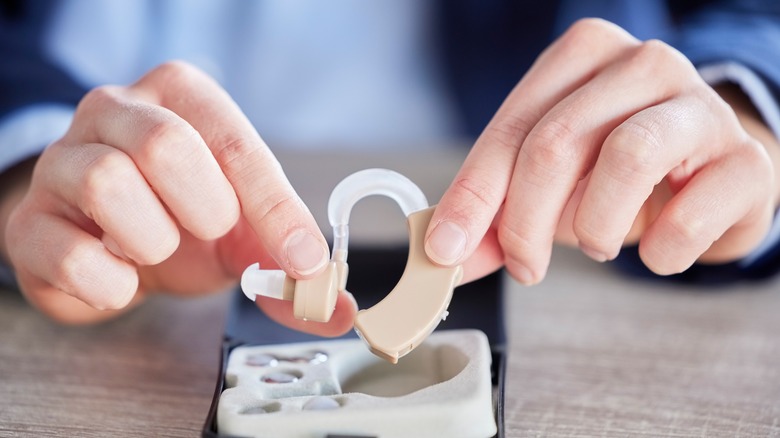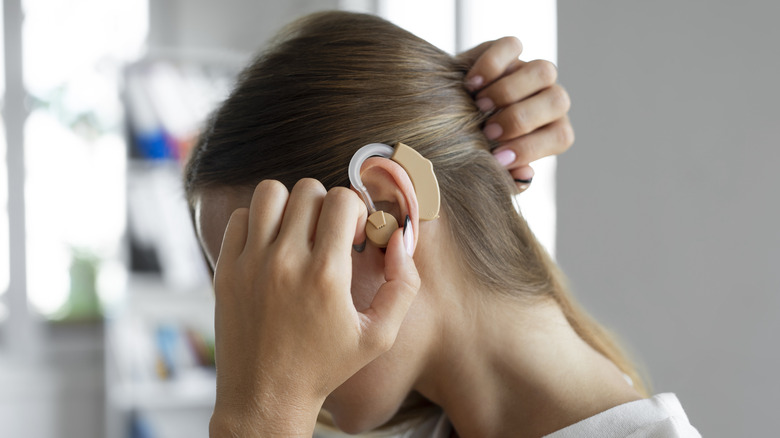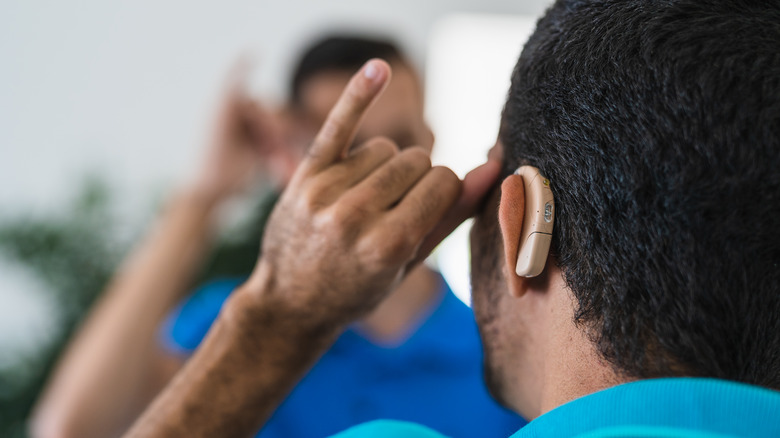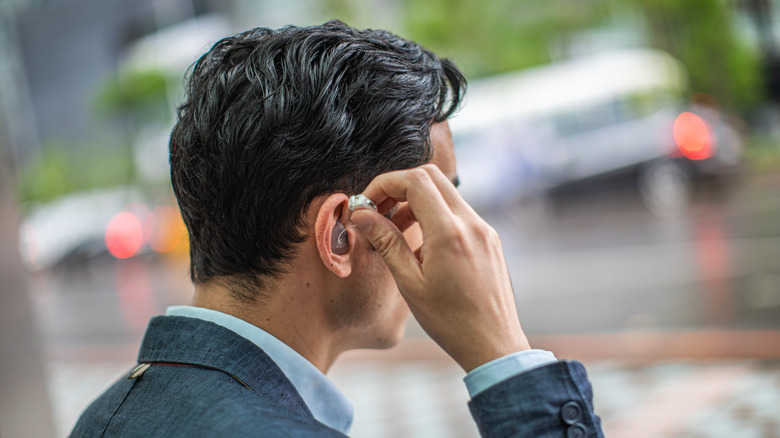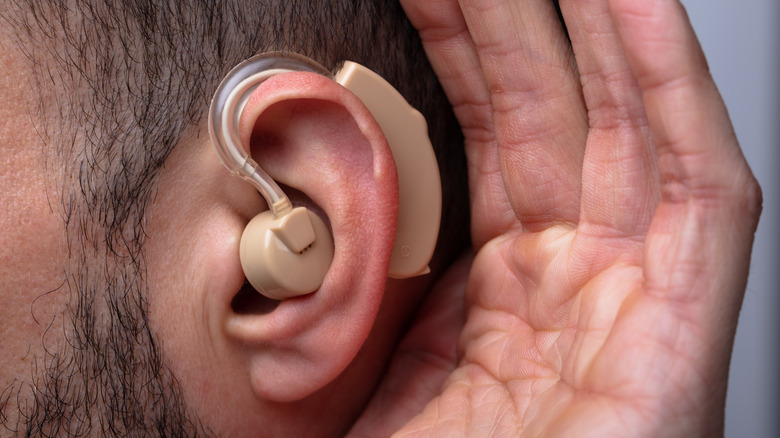Everything You Need To Know Before Buying Over-The-Counter Hearing Aids
We may receive a commission on purchases made from links.
With the finalization of a landmark rule by the FDA, people with self-diagnosed hearing loss have unprecedented access to over-the-counter (OTC) hearing aids. In line with President Biden's Executive Order on Promoting Competition in the American Economy, this groundbreaking rule seeks to improve market affordability, safety, and effectiveness by encouraging competition and new ideas.
The introduction of OTC hearing aids has opened up a world of possibilities for people in need of hearing aids. Hearing aids are now available over-the-counter, bypassing the previously required medical exam, prescription, or audiologist fitting. This ease of access encourages people to take charge of their hearing health and actively seek out cheaper hearing aids on their own.
However, it's important to have a thorough understanding of all the factors involved before making the decision to buy over-the-counter hearing aids. This article is meant to be a helpful resource for prospective buyers by covering some of the most important issues you should think about. The aim is to give you the tools you need to make educated decisions about your hearing health, including how to evaluate features and functions, set reasonable expectations for the effectiveness of OTC devices, and more.
Features and functionality
When considering the features and functionality of OTC hearing aids, it's important to recognize that these devices typically offer basic amplification and sound enhancement features but may not have the advanced capabilities found in professionally fitted hearing aids. OTC devices are designed for adults with mild to moderate hearing loss and aim to provide an accessible and cost-effective solution. So, their limitations in terms of technology and customization come as no surprise.
According to Healthline, hearing aids vary in features, including Bluetooth streaming, rechargeable batteries, feedback suppression, and smartphone control. These features can enhance the functionality and convenience of the devices. However, most of these features cannot be expected from OTC devices. For example, OTC hearing aids may not have features such as noise reduction, directional microphones, or customized programming, which are commonly found in professionally fitted hearing aids. These advanced features are particularly beneficial in challenging listening environments and can enhance speech clarity while reducing background noise.
This gap in features is why it's essential to consider your lifestyle, listening needs, and desired outcomes when choosing an OTC hearing aid. On the bright side, basic functionality usually means lower prices. OTC aids offer convenience and cost savings compared to prescription aids, with prices ranging from $200 to $1,000 per pair.
Proper fit and comfort
Proper fit and comfort are crucial considerations when buying over-the-counter (OTC) hearing aids. Unlike professional hearing aids, which are custom-fit based on impressions of your ears, OTC devices typically have a one-size-fits-all design, which may not provide the same level of comfort or secure fit that professional devices offer.
To maximize the effectiveness of OTC hearing aids, it's important to ensure they fit well and feel comfortable when worn. A proper fit helps ensure the device stays securely in place, preventing discomfort and potential issues like feedback or sound leakage. Comfortable wear is essential for long-term usage, allowing individuals to wear the devices for extended periods without discomfort or irritation.
When considering the fit and comfort of OTC hearing aids, there are a few aspects to keep in mind. Firstly, the physical design of the device plays a role. Some OTC hearing aids come in different styles, such as in-the-ear (ITE) or behind-the-ear (BTE), allowing individuals to choose the one that suits their preferences and comfort level. Behind-the-ear styles are generally better at reducing background noise, while smaller devices may be more discreet but could have limited features and may be more challenging to handle.
Additionally, the materials used to construct the hearing aids can impact comfort. It's important to look for OTC devices made from hypoallergenic materials that are gentle on the skin and ear canal. Devices with adjustable or interchangeable ear tips or domes can also contribute to a better fit and increased comfort.
Cost and affordability
Cost and affordability are key considerations when purchasing over-the-counter (OTC) hearing aids. OTC devices are generally more affordable compared to professionally fitted hearing aids, which have an average price of around $4,600 per pair. This cost difference can be significant and may make OTC hearing aids a more accessible option for individuals with hearing loss who are on a limited budget.
However, it's important to consider the long-term cost implications of OTC hearing aids. While they may be more affordable upfront, they may lack certain benefits and support that come with professionally fitted hearing aids. Professional devices often come with warranties, ongoing support, and potential insurance coverage, which can help offset future repair or replacement costs.
To make an informed decision about cost and affordability, it is recommended to consider factors beyond the initial purchase price. Assessing the long-term value and potential expenses associated with repairs, replacements, and ongoing maintenance is recommended. It's also important to compare the cost of OTC devices from different manufacturers, as prices may vary. Reading customer reviews, visiting manufacturer websites, and seeking expert opinions from reputable sources can provide valuable insights into the cost-effectiveness of different OTC hearing aids.
Examples of OTC hearing aid models that offer affordability and various features include the Jabra Enhance Select 100 and 200, Eargo 6, Audien Hearing Atom Pro, Audicus Wave, and MDHearing VOLT. These devices offer different price points and features, allowing individuals to find options that suit their budget and preferences.
Follow-up care and support
Unlike professional hearing aids — which typically come with ongoing support and follow-up appointments for adjustments, programming, and maintenance — OTC devices may lack the same level of care. These appointments allow hearing healthcare professionals to fine-tune the devices based on individual needs, ensuring optimal performance and comfort.
For example, a hearing healthcare professional can help adjust the amplification settings, sound profiles, or directional microphones based on individual communication environments. With OTC hearing aids, such support may be limited or non-existent, leaving individuals to manage the devices independently. So, this aspect of follow-up care and support is crucial to consider before making a decision.
Managing an OTC device independently requires a certain level of comfort and confidence as well. Some individuals may possess the technical skills and knowledge to adjust and maintain their hearing aids effectively. They may find it convenient to troubleshoot any issues that arise on their own. However, others may benefit significantly from the ongoing care provided by a hearing healthcare professional.
While some companies offering OTC hearing aids may provide customer support and assistance, the depth and scope of these services may not be equivalent to the comprehensive care provided by hearing healthcare professionals.
Realistic expectations
According to Hearing Insider, OTC hearing aids are more suitable for individuals with mild to moderate hearing loss, and they may not offer the same level of performance or customization as professionally fitted hearing aids. It's important to understand that while OTC devices can enhance your ability to hear, they may not fully restore your hearing to normal or address complex hearing needs.
One aspect to consider when setting realistic expectations for OTC hearing aids is their limited customization. OTC devices are pre-programmed and self-fitted, which means they may not provide the same level of personalized settings and adjustments as professionally fitted hearing aids. Customization plays a significant role in optimizing hearing aids for individual hearing profiles than one would think, and OTC devices may not offer the same level of fine-tuning.
Additionally, it's important to note that OTC hearing aids may not be suitable for severe hearing loss or other specific conditions requiring specialized treatment. Regardless of the condition and its severity, we recommend consulting with an audiologist to accurately determine the level of hearing loss and suitability for OTC hearing aids.
